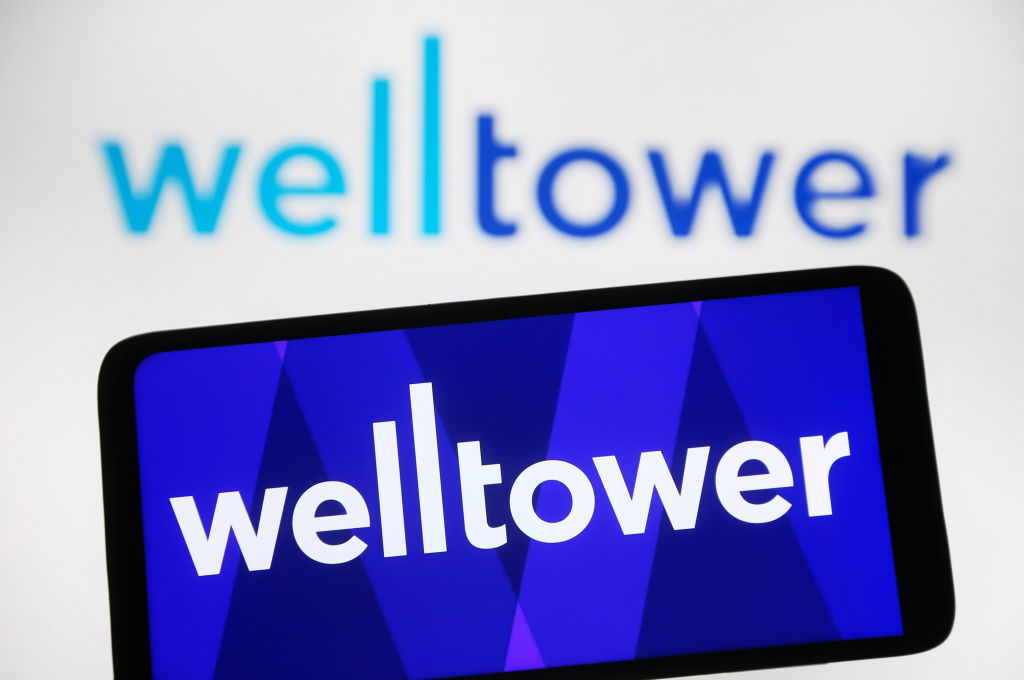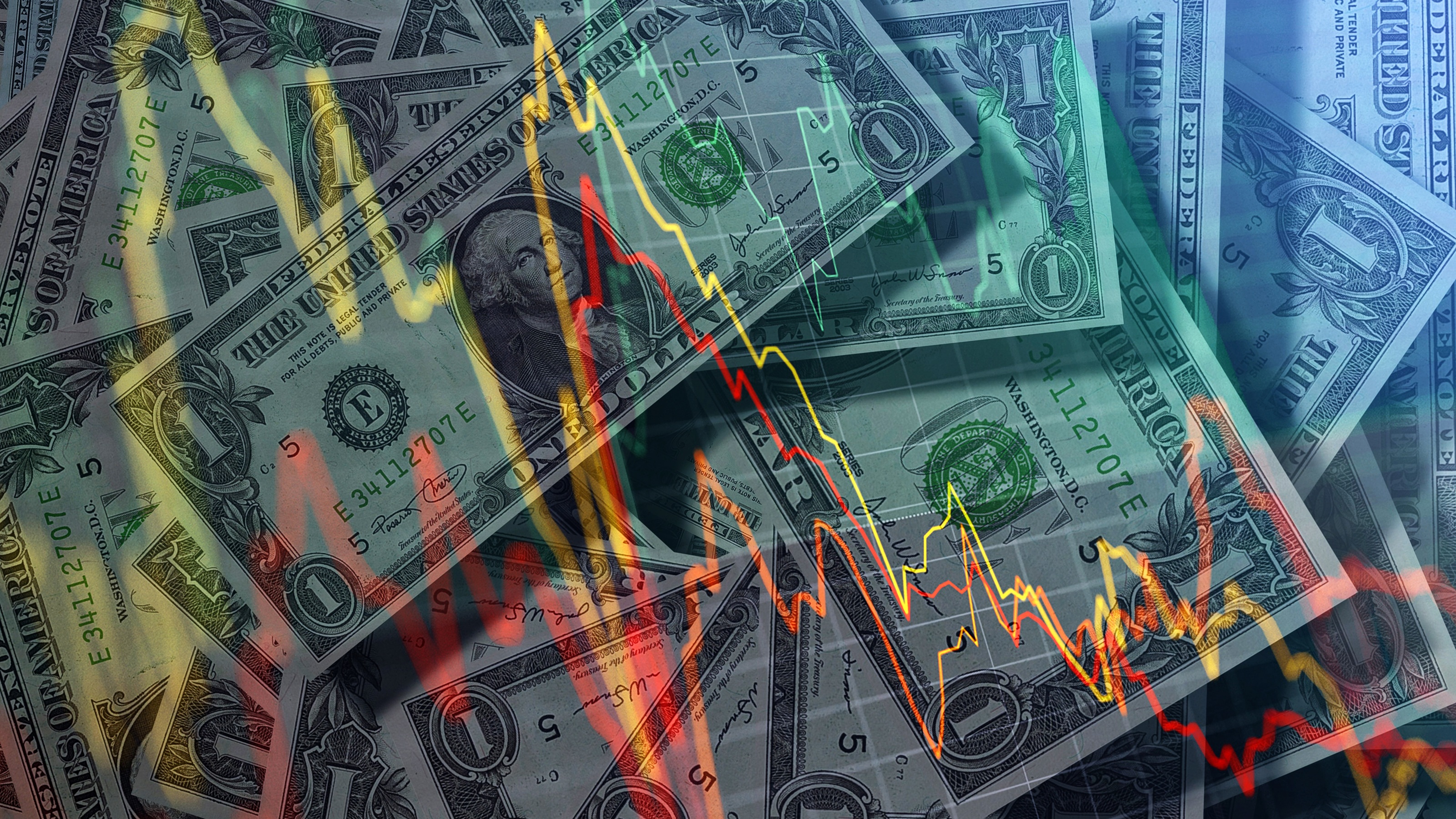Best Stocks to Buy Now
When compiling our list of the best stocks to buy now, we look for high-quality companies that are poised to benefit over the next 12 months.

Profit and prosper with the best of Kiplinger's advice on investing, taxes, retirement, personal finance and much more. Delivered daily. Enter your email in the box and click Sign Me Up.
You are now subscribed
Your newsletter sign-up was successful
Want to add more newsletters?

Delivered daily
Kiplinger Today
Profit and prosper with the best of Kiplinger's advice on investing, taxes, retirement, personal finance and much more delivered daily. Smart money moves start here.

Sent five days a week
Kiplinger A Step Ahead
Get practical help to make better financial decisions in your everyday life, from spending to savings on top deals.

Delivered daily
Kiplinger Closing Bell
Get today's biggest financial and investing headlines delivered to your inbox every day the U.S. stock market is open.

Sent twice a week
Kiplinger Adviser Intel
Financial pros across the country share best practices and fresh tactics to preserve and grow your wealth.

Delivered weekly
Kiplinger Tax Tips
Trim your federal and state tax bills with practical tax-planning and tax-cutting strategies.

Sent twice a week
Kiplinger Retirement Tips
Your twice-a-week guide to planning and enjoying a financially secure and richly rewarding retirement

Sent bimonthly.
Kiplinger Adviser Angle
Insights for advisers, wealth managers and other financial professionals.

Sent twice a week
Kiplinger Investing Weekly
Your twice-a-week roundup of promising stocks, funds, companies and industries you should consider, ones you should avoid, and why.

Sent weekly for six weeks
Kiplinger Invest for Retirement
Your step-by-step six-part series on how to invest for retirement, from devising a successful strategy to exactly which investments to choose.

Kiplinger's annual investing outlook, which includes the best stocks to buy, has been a feature for our readers since 2012.
As executive editor for Kiplinger's Personal Finance Magazine, I have authored the piece since then, surveying the stock market and economy and synthesizing my findings into key takeaways.
That's no small task, given the broad and dynamic nature of the market. Along with conducting plenty of research, I rely on my experience to draw out the most important trends and likely winners for the best stocks to buy.
I've covered this story for over a decade now, but I've been an investing writer for far longer. I've seen investors through a lot of bull markets and bear markets.
How you can choose the best stocks to buy
When investors are attempting to find the best stocks to buy now, they should look beyond factors such as company size (small-cap stocks and large-cap stocks, for instance) or investing style (such as growth or value) and search for stocks of companies with consistent profits, good cash flow and other indicators that reflect quality.
"If a company generates more cash than it needs to run its business, it can do a number of useful things with it, such as pay dividends, buy back its stock, acquire other companies, expand its business and knock out its debts," writes Kiplinger contributor Will Ashworth on the importance of good cash flow.
While Kiplinger's outlook provides context and advice related to general market trends, it's important for individual investors to consider their own risk tolerance and time horizon when deciding what works best for them and their financial goals.
With that in mind, here are seven of the best stocks to buy now.

Best stocks to buy
When assembling this list of Kiplinger's best stocks to buy, we seek out high-quality companies that boast solid fundamentals such as strong earnings and revenue growth as well as free cash flow. Free cash flow is the money left over after operating expenses and spending on assets.
Additionally, we will often look for names considered some of the best value stocks as measured by their forward price-to-earnings (P/E) ratios.
Our list of the best stocks to buy varies by size and industry and the picks are not meant to make up a diversified portfolio. But all, for one reason or another, are stocks we feel are well positioned to benefit over the next 12 months.
Company | Ticker symbol |
|---|---|
Adobe | ADBE |
Cardinal Health | CAH |
Eli Lilly | LLY |
GE Aerospace | GE |
Marvell Technology | MRVL |
Welltower | WELL |

Adobe
- Sector: Technology
- Market value: $111.6 billion
- Dividend yield: N/A
Adobe (ADBE), the dominant player in creative software, is further ahead in the artificial intelligence (AI) boom than investors give it credit for.
The maker of Photoshop, Illustrator and the pioneering PDF Acrobat tool has seen its shares tumble over fears that its conventional software will get eaten alive by AI. But early returns on its AI effort, centered around its Firefly suite of products, are promising.
Analyst Angelo Zino, at research firm CFRA, says Adobe's AI-centric products are hitting their early targets and contributing significantly to the firm's annual recurring revenue stream.
The tech stock trades for about 12 times estimated earnings for the next 12 months, roughly one-third of peak levels from 2024.

Cardinal Health
- Sector: Health care
- Market value: $51.8 billion
- Dividend yield: 0.9%
Cardinal Health (CAH), one of three major middlemen in drug distribution, is back after losing its OptumRx contract in 2024.
The firm, which also helps medical practices run back-office operations, among other things, reported solid results for the most recent quarter, and if the company maintains its pace, it could do better than management forecasts for 2026, says UBS analyst Kevin Caliendo.
Cardinal's focus on specialty pharmaceuticals — high-cost meds for cancer, for example — is starting to pay off. Another plus: Its drug-distribution business is defensive and largely insulated from tariff concerns.
Shares are at an all-time high, but at 20 times estimated earnings, they trade in line with competitors. And analysts expect Cardinal to post 18% earnings growth in 2026 — better than its peers. Even so, aim to buy the health care stock on any dips.

Eli Lilly
- Sector: Health care
- Market value: $898.1 billion
- Dividend yield: 0.7%
Indianapolis-based drugmaker Eli Lilly (LLY) is best known lately for its diabetes treatment and weight-loss drugs Mounjaro and Zepbound. In the most recent quarter, the two logged year-over-year sales gains of 109% and 185%, respectively. And Lilly is on track with an oral GLP-1 drug.
But the firm is busy in other areas, too, announcing approvals for drugs targeting ulcerative colitis and Alzheimer's.
In October, analysts at Argus Research boosted their earnings estimates for the Buy-rated stock, and they see an 82% annual growth rate for earnings in 2025 and another 28% bump in 2026.
The stock trades at a price-to-earnings ratio of 30 based on a consensus of analysts' estimates for the next 12 months.

GE Aerospace
- Sector: Industrials
- Market value: $325.1 billion
- Dividend yield: 0.5%
GE Aerospace (GE), the successor to the original General Electric Co., has been an engine for shareholder returns since the 2024 breakup of the old, moribund GE.
Roughly 75% of the world's airplane flights use GE's aircraft engines, which need significant rebuilding over the course of their long lives. That means GE gets an estimated 70% of its revenue from servicing its own products.
Analyst Ronald Epstein, of BofA Global Research, says a division catering to military aircraft has "rounded GE into a full-fledged defense play."
GE is aggressively buying back shares and increasing a dividend that currently yields 0.5%. The industrial stock is expensive, at 42 times the next 12 months' earnings, but seems poised to continue its ascent. BofA sees the stock trading at $365 over the next 12 months.

Marvell Technology
- Sector: Technology
- Market value: $64.1 billion
- Dividend yield: 0.3%
In the race to design artificial intelligence chips, Marvell Technology (MRVL) has a lot to prove. The company has grown through acquisition, but analysts want to see it increase revenues and earnings organically.
Amazon.com's (AMZN) cloud-computing business is a big customer, but concerns about that relationship were partly to blame for a 24% drop in the stock in August. (Marvell says it's not a worry.)
A poor quarter was also a drag. Still, analysts who are bullish on the stock say Marvell has a broad, diversified semiconductor portfolio that can weather tough times.
And shares are cheap relative to peers, trading at 21 times estimated earnings for the year ahead. Infrastructure Capital Advisors' Jay Hatfield says he thinks the semiconductor stock could trade at a P/E of 35, which represents a 25% jump. Buckle up, though: "Marvell is not for the faint of heart," he says.

Welltower
- Sector: Real estate
- Market value: $128.7 billion
- Dividend yield: 1.6%
The oldest baby boomers will turn 80 in 2026, and that will drive demand for senior-living facilities. And there's limited supply: Occupancy rates are high, and few new facilities are in the works. That's a bullish backdrop for Welltower, a major player in senior housing real estate investment trusts (REITs).
The firm recently sold 70% of its medical office portfolio so it could acquire more senior-home facilities. Welltower (WELL) has shored up its balance sheet, too, and now is "the most under-levered REIT out there," says analyst Vikram Malhotra, who covers REITs for Mizuho Securities.
The catch: Shares are up 36% over the past 12 months and trade at 43 times adjusted funds from operations (the preferred income measure for REITs), more than double the ratio for the typical REIT. The premium is "reasonable," says Malhotra, when you consider Welltower's superior cash flow growth.
Note: This item first appeared in Kiplinger Personal Finance Magazine, a monthly, trustworthy source of advice and guidance. Subscribe to help you make more money and keep more of the money you make here.
Related content
Profit and prosper with the best of Kiplinger's advice on investing, taxes, retirement, personal finance and much more. Delivered daily. Enter your email in the box and click Sign Me Up.

Anne Kates Smith brings Wall Street to Main Street, with decades of experience covering investments and personal finance for real people trying to navigate fast-changing markets, preserve financial security or plan for the future. She oversees the magazine's investing coverage, authors Kiplinger’s biannual stock-market outlooks and writes the "Your Mind and Your Money" column, a take on behavioral finance and how investors can get out of their own way. Smith began her journalism career as a writer and columnist for USA Today. Prior to joining Kiplinger, she was a senior editor at U.S. News & World Report and a contributing columnist for TheStreet. Smith is a graduate of St. John's College in Annapolis, Md., the third-oldest college in America.
- Nellie S. HuangSenior Editor, Kiplinger Personal Finance Magazine
- David MilsteadSenior Associate Editor, Kiplinger Personal Finance
-
 Why Most Millionaires Don't Feel Wealthy — and What It Really Takes to Feel Financially Secure
Why Most Millionaires Don't Feel Wealthy — and What It Really Takes to Feel Financially SecureA growing share of Americans reach millionaire status yet still worry about money. Here's why wealth feels different today and how to build true financial confidence.
-
 You Could Be Overpaying for Internet. Here’s How to Choose the Right Type
You Could Be Overpaying for Internet. Here’s How to Choose the Right TypeFiber, cable, 5G wireless and satellite internet all offer different speeds, reliability and price points. Understanding the differences could help you lower your monthly bill or improve performance.
-
 Chapter X: Steering Men Through Rocky Transitions to Retirement
Chapter X: Steering Men Through Rocky Transitions to RetirementDon’t just retire — evolve. Chapter X is a strategy for a high-impact second act, designed for men, by a man.
-
 If the Markets Cause You Restless Nights, You Might Want to Consider This Safety Net
If the Markets Cause You Restless Nights, You Might Want to Consider This Safety NetIf you find market volatility too stressful, buying annuities that provide stability and protect your principal could help you rest easier. Here's what to consider.
-
 When Markets Are Jumpy: A Financial Planner Explains How to Stay Grounded
When Markets Are Jumpy: A Financial Planner Explains How to Stay GroundedMarket turbulence makes even the most experienced investors nervous. Here are some tips for ignoring the panic and trusting your plan when things get volatile.
-
 To Love, Honor and Make Financial Decisions as Equal Partners
To Love, Honor and Make Financial Decisions as Equal PartnersEnsuring both partners are engaged in financial decisions isn't just about fairness — it's a risk-management strategy that protects against costly crises.
-
 Small Caps Step Up, Tech Is Still a Drag: Stock Market Today
Small Caps Step Up, Tech Is Still a Drag: Stock Market TodayEarly strength gave way to AI skepticism again as a volatile trading week ended on another mixed note.
-
 4 Pro Tips for Successfully Scaling the Medicare Mountain
4 Pro Tips for Successfully Scaling the Medicare MountainAttempting to conquer Medicare without a plan is risky. The safest route requires a thorough understanding of your options and never leaves decisions to chance.
-
 For More Flexible Giving, Consider Combining a Charitable Remainder Trust With a Donor-Advised Fund
For More Flexible Giving, Consider Combining a Charitable Remainder Trust With a Donor-Advised FundIf a charitable remainder trust puts too many constraints on your family's charitable giving, consider combining it with a donor-advised fund for more control.
-
 The Illinois 'Cliff Tax': A Single Dollar Could Cost Families Hundreds of Thousands
The Illinois 'Cliff Tax': A Single Dollar Could Cost Families Hundreds of ThousandsIllinois' estate tax "threshold" (rather than "exemption") can surprise families, but proactive planning can help preserve more for heirs and charitable causes.
-
 AI Unwind Takes 2% Off the Nasdaq: Stock Market Today
AI Unwind Takes 2% Off the Nasdaq: Stock Market TodayMarkets are paying more and more attention to hyperscalers' plans to spend more and more money on artificial intelligence.
